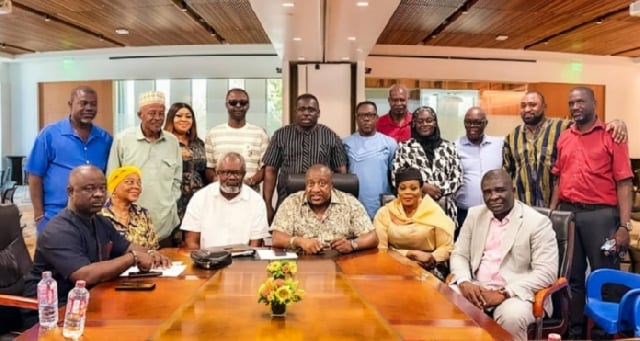Paragraph 1: The Genesis of the Protest
A significant political demonstration is set to unfold in Accra, Ghana, on May 5th. This protest arises from the controversial suspension of Chief Justice Gertrude Torkornoo, a decision that has sparked outrage and concern among various political factions. A coalition of political parties, including the New Patriotic Party (NPP), Liberal Party of Ghana (LPG), National Democratic Party (NDP), People’s National Party (PNP), and others, has united to voice their dissent against what they perceive as an assault on the independence of the judiciary. This coalition views the suspension as a politically motivated maneuver by President John Mahama’s administration to exert undue influence over the judicial branch of government.
Paragraph 2: The Basis of the Suspension
The suspension of Chief Justice Torkornoo stems from three separate petitions filed against her, alleging misconduct and warranting her removal from office. Following an investigation, a prima facie case was established, leading to the decision to suspend her. While the specific details of the petitions remain undisclosed, the swiftness of the suspension and its timing have fueled suspicions among the opposition parties. They argue that the process lacks transparency and that the allegations against the Chief Justice are a pretext for a broader political agenda.
Paragraph 3: Allegations of Government Overreach
The coalition of political parties has vehemently denounced the suspension, characterizing it as a blatant attempt by the Mahama administration to control all branches of government. They express deep apprehension that the suspension sets a dangerous precedent, undermining the separation of powers and eroding the integrity of the judiciary. The coalition contends that the government is systematically dismantling checks and balances, jeopardizing democratic principles and paving the way for authoritarian rule. This perceived power grab has galvanized the opposition and intensified their determination to resist what they view as an undemocratic power play.
Paragraph 4: The Protest March and Its Objectives
The planned demonstration is intended to be a forceful expression of public disapproval of the Chief Justice’s suspension. The march, scheduled to commence at 7:00 a.m. from the park opposite the Supreme Court, will traverse major thoroughfares of Accra, culminating in a symbolic stop at Parliament House before proceeding to the Jubilee House, the presidential residence. The protesters aim to deliver a petition directly to President Mahama or a designated representative, demanding the immediate reinstatement of Chief Justice Torkornoo. They believe this direct appeal will underscore the gravity of the situation and the widespread public condemnation of the government’s actions.
Paragraph 5: The Significance of the Protest and its Potential Impact
The protest carries significant weight, representing a united front against what is perceived as an encroachment on judicial independence. The participation of diverse political parties signifies the widespread concern over the government’s actions and the potential ramifications for Ghana’s democracy. The scale of the protest and its strategic route through the heart of the capital city are designed to maximize visibility and draw attention to the coalition’s grievances. The demonstration has the potential to exert considerable pressure on the Mahama administration and could influence public opinion regarding the government’s handling of the situation.
Paragraph 6: The Future of Judicial Independence in Ghana
The outcome of the protest and the government’s response will be crucial in determining the future trajectory of judicial independence in Ghana. Whether the demonstration succeeds in its objective of reinstating Chief Justice Torkornoo remains to be seen. However, the protest itself serves as a potent reminder of the importance of upholding democratic principles and safeguarding the separation of powers. The event underscores the fragility of democratic institutions and the constant vigilance required to protect them from political interference. The international community will undoubtedly be watching closely, scrutinizing the government’s response to the protest and its commitment to respecting the rule of law and judicial autonomy. The events unfolding in Ghana serve as a microcosm of the challenges faced by many democracies globally, highlighting the ongoing struggle to maintain the delicate balance between governmental authority and individual freedoms.














